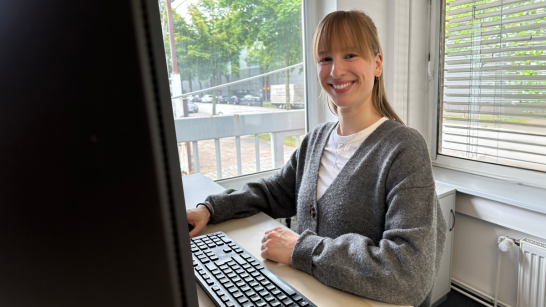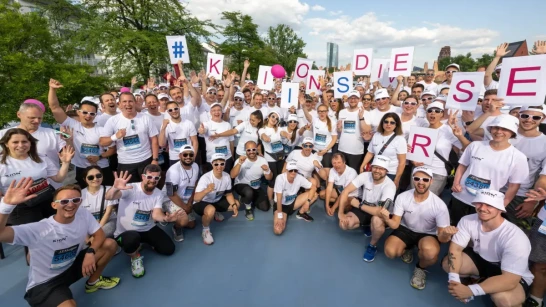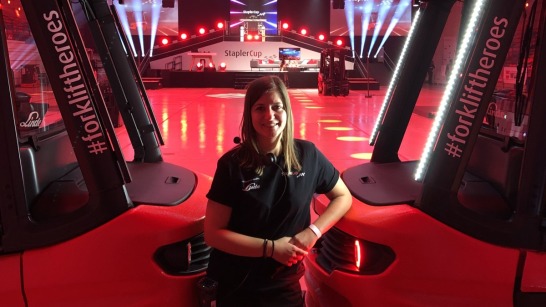Interviewer: You've already mentioned the sign language interpreters. What other tools and technologies make your daily work easier?
Sarina: Yes, of course. For example, making phone calls is part of most office jobs. But how do I do that as a deaf person? I use a tablet with a digital interpreting service application. During office hours, my contacts call the interpreting service on the landline, and I see the translation of the conversation into sign language on the tablet and can respond in turn. Conversely, I give the interpreting service a phone number and they call the branch offices, for example. So I can make phone calls.
Artificial intelligence, such as automatic translation in Teams calls, also helps me. In Microsoft Teams, I can turn on the transcript and read what the others are saying. I then use the chat function to communicate myself.
Another special technical feature is that Occupational Safety has installed a visual light signal system for fire alarms. This is important so that in the event of a fire I can hear the signals and leave the building on my own. Other than that, I don't need anything special. I can work well on my own.
Interviewer: Sarina, is it rude to ask how long you've been deaf?
Sarina: No, it is not a rude question. I was born deaf and we assume that the deafness was inherited from my parents.
Interviewer: And how did you come to STILL?
Sarina: Oh God, that's a bit of a long story. My father has been working at STILL for 25 years and is also deaf. I worked here for ten weeks as part of a student internship and had a lot of fun. After I finished school I was interested in an apprenticeship and STILL could also imagine that. So I applied as usual and got an apprenticeship as an industrial clerk.
Interviewer: In which area do you work as a permanent employee today?
Sarina: I work in the Customer Order Center and look after the Châtellerault plant and a lot of branches. So I'm the contact person for the vehicles that are produced at the Châtellerault plant and sold to customers. I act as an intermediary between the branches and production, and I help with customer orders, questions and problems.
Interviewer: So you also speak French?
Sarina: No, not at all. Neither in sign language nor in writing. We only communicate in written English.
Interviewer: You mentioned that your father also works here. Are there any other deaf people here at the Hamburg plant that you know of?
Sarina: I think there are five or six deaf people at the moment. There used to be more than ten, but some of them have retired or changed employers.
Interviewer: What is a typical working day like for you?
Sarina: It's just like a normal working day. I do my work, I have daily tasks that I have to do, and then I go to meetings. Maybe one difference is that I have interpreters with me on a regular basis, especially in meetings and at meeting times, to support me.




